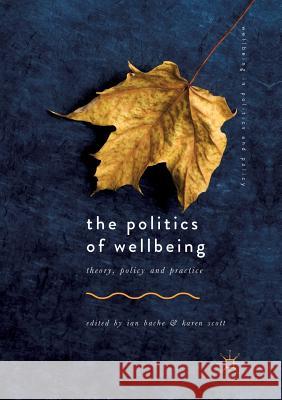The Politics of Wellbeing: Theory, Policy and Practice » książka
topmenu
The Politics of Wellbeing: Theory, Policy and Practice
ISBN-13: 9783030096304 / Angielski / Miękka / 2018 / 310 str.
Kategorie BISAC:
Wydawca:
Palgrave MacMillan
Seria wydawnicza:
Język:
Angielski
ISBN-13:
9783030096304
Rok wydania:
2018
Wydanie:
Softcover Repri
Numer serii:
000815487
Ilość stron:
310
Waga:
0.38 kg
Wymiary:
21.01 x 14.81 x 1.7
Oprawa:
Miękka
Wolumenów:
01
Dodatkowe informacje:
Wydanie ilustrowane











